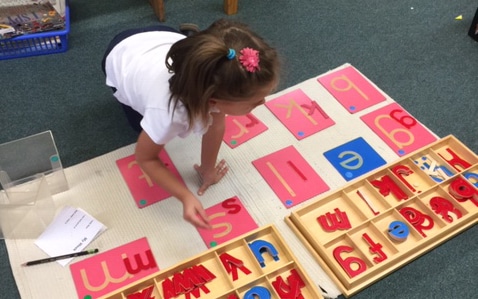The Montessori Method, developed by Dr. Maria Montessori, has steadily gained popularity in the United States over the years. Known for its child-centered approach, this educational philosophy is increasingly embraced by parents and educators alike. The unique methods and benefits of Montessori education are helping to shape the future of American education.

What is the Montessori Method?
At its core, the Montessori Method is a teaching approach that emphasizes self-directed learning, where children are given the freedom to explore their interests at their own pace. Rather than following a rigid curriculum, Montessori classrooms are designed to be flexible, with learning materials accessible to the children, encouraging independence and critical thinking.
Key Principles of the Montessori Approach
The Montessori Method is built upon several key principles:
Child-Centered Learning: Children are encouraged to choose their own activities, allowing them to learn according to their interests and abilities.
Hands-On Learning: Montessori classrooms are filled with practical materials that children can manipulate to reinforce their learning.
Respect for the Child: The method promotes a respectful, non-authoritarian environment where children’s opinions and needs are taken into consideration.
Self-Discipline: Children are taught to manage their time and behavior, fostering a sense of responsibility.
Multi-Age Classrooms: Children of different ages work together, which fosters peer learning and collaboration.
The Rise of Montessori Schools in the United States
In the past two decades, Montessori education has seen a significant rise in the United States. While it began as an alternative form of education for children with disabilities, it has since become a mainstream choice for parents seeking a more personalized and holistic approach to education.
Benefits of Montessori Education
Montessori education offers numerous benefits, making it an appealing choice for many American parents:
Individualized Learning: Children work at their own pace, allowing them to explore subjects in depth or move quickly through material they have mastered.
Critical Thinking Skills: By encouraging children to solve problems independently, Montessori education promotes critical thinking.
Fostering Independence: Montessori children learn to take responsibility for their own learning, which enhances their confidence and independence.
Social Development: The mixed-age environment fosters socialization and teamwork as children learn to respect and collaborate with peers.
Challenges and Considerations for Montessori Education
While Montessori education offers many advantages, it’s important to note that it may not be the best fit for every child. The lack of a structured curriculum can be challenging for some students, and the method may require more time and resources to implement effectively in some schools.
Conclusion
The Montessori Method continues to be a valuable educational model in the United States. As more parents and educators recognize its benefits, the method’s popularity will likely continue to grow. By focusing on self-directed learning, independence, and critical thinking, Montessori education prepares children for a successful future both inside and outside the classroom.